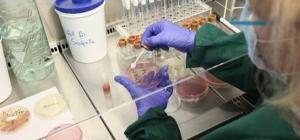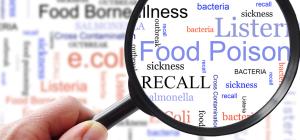Antimicrobial resistance and food safety: A public health challenge
Dr. Jovana Kovacevic
Abstract
The development of antimicrobial resistance (AMR) is a serious public health threat that can turn into a global crisis if not mitigated. AMR reduces our ability to effectively combat infectious bacterial diseases and is becoming a relevant concern in food safety and sanitation. Environmental foodborne pathogens, such as Listeria monocytogenes, can develop stress response mechanisms that impact AMR, with implications for cleaning and sanitizing programs in the food industry. Understanding how food processing environments and associated activities impact the development of AMR is thus extremely important.
In addition to an ongoing issue with lack of clear terminology to characterize AMR, there is a need for standardization in the methodology and definitions of sanitizer resistance, tolerance, and susceptibility. An ongoing challenge is that different messages are conveyed in different research studies, with the translation to industry implications often being lost. In food processing environments, appropriate cleaning and sanitation procedures need to be paired with optimal hygienic design of the facility and equipment. However, this combination is rare, particularly in fresh produce facilities. These less-than-ideal environments can create settings in which bacteria are exposed to sub-lethal sanitizer concentrations. Links between reduced susceptibility to quaternary ammonium compound (QAC)-based sanitizers and antibiotic resistance have been reported for various foodborne bacteria.
This webinar presentation explores the use of antimicrobials in the food processing industry, selective pressures linked to emergence and spread of foodborne microorganisms that result in reduced susceptibilities to antimicrobials, as well as the co-selection and cross-resistance phenomena through the lens of L. monocytogenes.
Speaker
Dr. Jovana Kovacevic is an Associate Professor and Food Safety Extension Specialist at the Oregon State University’s Food Innovation Center (FIC) in Portland. In her current role, Dr. Kovacevic directs the food safety program at the FIC and the USDA-funded Western Regional Center to Enhance Food Safety. Her research uses molecular methods and whole genome sequencing to trace, better understand and prevent contamination events in the food chain, with particular focus on Listeria monocytogenes. Through her work with the Western Regional Center, she supports the Western U.S. region in Food Safety Modernization Act-related food safety training, education and outreach activities. She is also a member of the Oregon Farm Food Safety Team, a lead instructor for FSPCA and PSA grower trainings, and a trainer for On-Farm Readiness Reviews.
Prior to joining OSU, Dr. Kovacevic worked as a lecturer at the University of British Columbia, a food safety consultant with the British Columbia Ministry of Health, and a Food Safety Scientist at the British Columbia Centre for Disease Control, in Canada.










